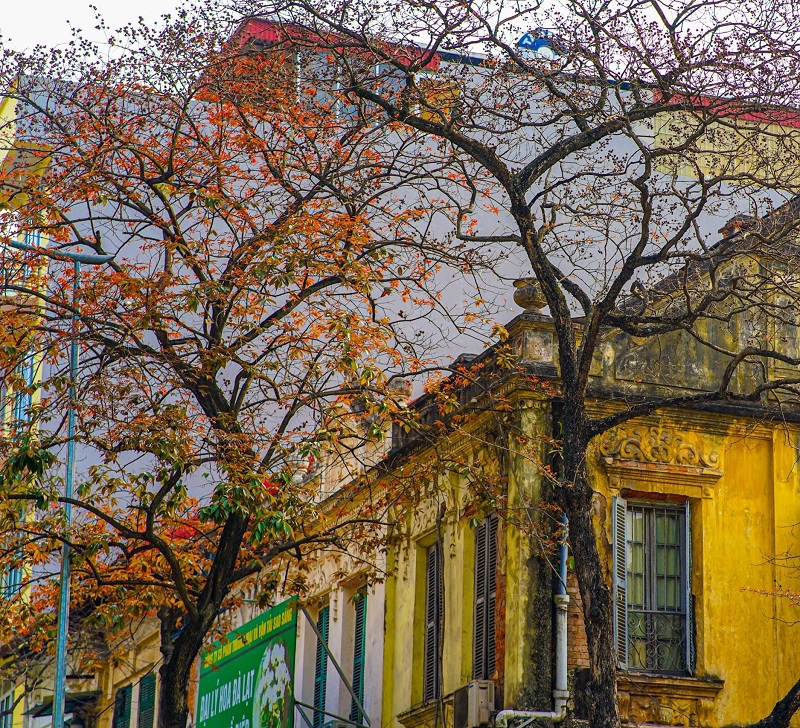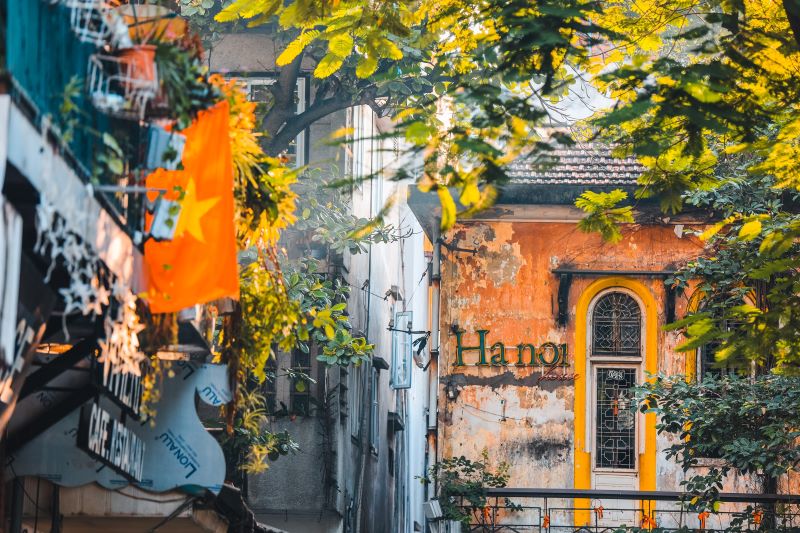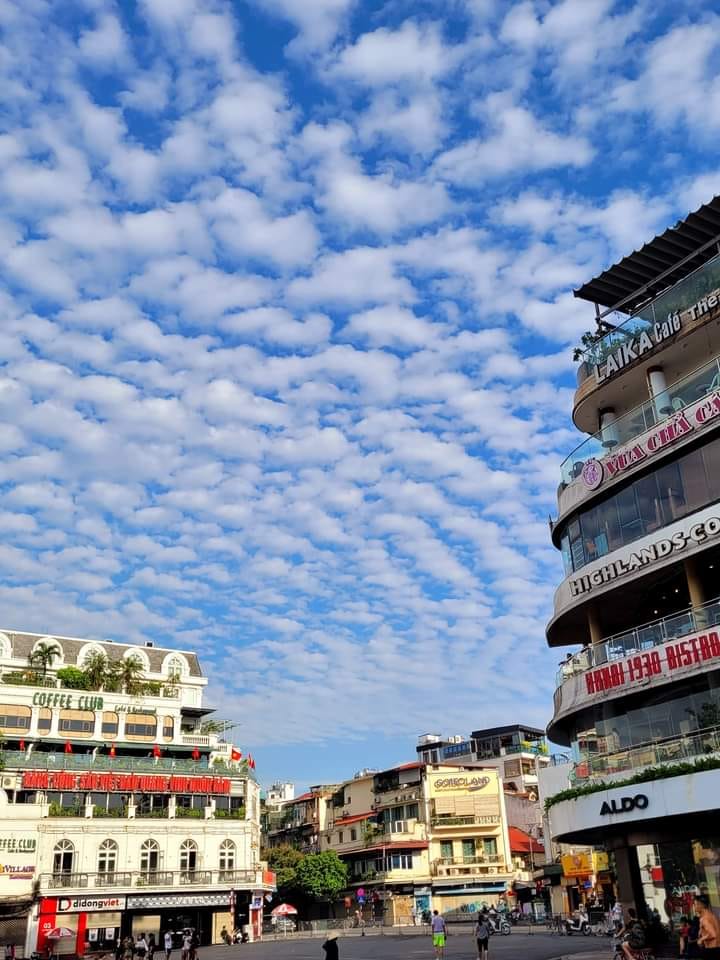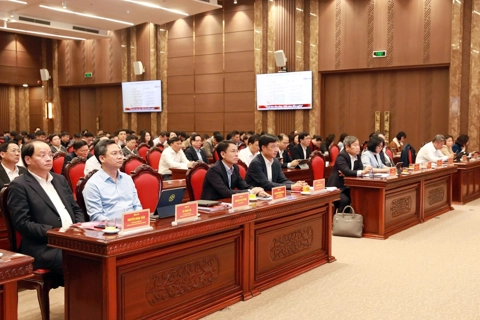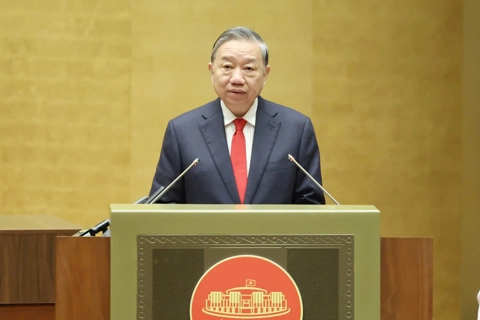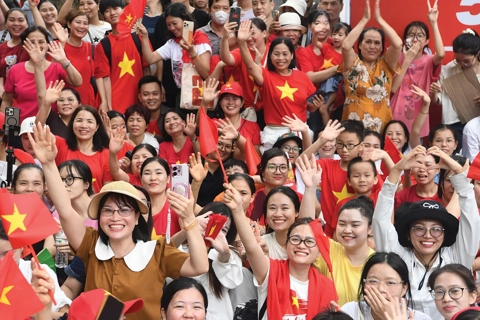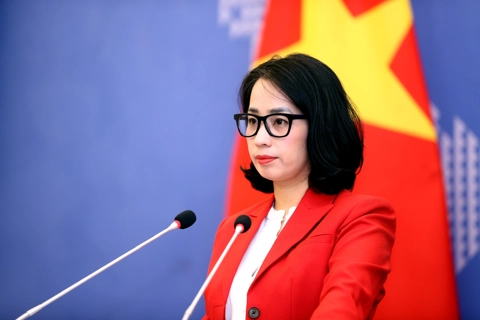Vietnam emerges as Southeast Asia's new tourism hotspot: German Press
The German news site DW recently noted that tourism has almost completely recovered from the pandemic and that Vietnam is becoming a popular destination for travelers to Asia.
Vietnam has quickly become one of the most popular destinations in Southeast Asia as tourists enjoy the country's diverse landscapes, beaches, mountainous rice terraces and bustling cities, according to Tommy Walker, staff writer for the news website www.dw.com.
| Hanoi's romantic beauty in fall.Photo: Vinh Nguyen |
A report by Google Destination Insights showed that Vietnam was the seventh most searched destination from March to June and the only country in Southeast Asia in the top 20.
"Vietnam's popularity can be seen in the number of international arrivals," Tommy said, citing data from the Vietnam National Administration of Tourism.
According to this, the country welcomed over 5.5 million foreign visitors in the first six months of 2023, exceeding the total number of international arrivals in 2022.
Foreign tourists on the rise
Vietnam's tourism sector has set a target of welcoming eight million visitors for the rest of 2023, but the country has since predicted that the number will rise to 10 million.
Bobby Nguyen, chairman of the Rustic Hospitality Group, a travel agency, told DW that the boost mainly comes from Chinese, Indian and Korean tourists.
"China has reopened the outbound market to Vietnam and the Indian market has been growing since 2022," he said.
Nguyen added that the use of social media and the influence of large travel groups have also helped boost Vietnam's international popularity.
"Having many online communication channels such as Facebook, Instagram, TikTok, or promotion channels on Google or other networking platforms is also the fastest way to promote Vietnam's image worldwide," he said.
| A corner of Hanoi's Old Quarter Area. Photo: Huy Pham |
New visa policy - a boost for growth
According to the Ministry of Public Security, a new visa policy that will take effect on August 15 is expected to revive tourism and hospitality. Instead of 30 days, people with Vietnamese e-visas can enter and exit the country as many times as they like within 90 days. Meanwhile, citizens of certain countries can now stay for 45 days instead of the previous 15.
Hoang Nhan Chinh, secretary of the Vietnam Tourism Advisory Board, told the local press that the new visa policy could help Vietnam welcome 12 million foreign tourists this year, far exceeding the set target.
Gary Bowerman, a tourism analyst based in Kuala Lumpur, told DW that the visa changes would boost Vietnam's tourism sector.
"It's picking up, and over the next six months, you will see an increase in travelers to Vietnam. I think it will be very strong, and you'll see growth, especially now that the Chinese market is back," he said.
One of Vietnam's selling points is that it's a lesser-known destination that offers tourism and business opportunities, Bowerman said.
"A lot of younger people now want to know a little bit more about the country. I think there's a lot about Vietnam that's not very well known. I think Thailand is probably better known. There is a sense of discovery and mystique about Vietnam. It is the country where people want to invest, where they want to do business and where they want to travel," he added.
| The pedestrian streets around Hoan Kiem Lake. Photo: Vinh Pham |
Opportunity for new source tourism market
For travel companies in Vietnam, the new visa policy and the prospect of more international arrivals is exciting, according to DW.
"I'm looking forward to seeing what happens," Max Lambert, owner of Fuse Hostels & Travel, told the German news site.
Fuse opened two hostels in the popular local destination of Hoi An Ancient Town in Quang Nam province late last year, but Lambert believes his business is already close to pre-pandemic levels.
Echoing the same sentiment, Santiago Cabré, general manager of Meliá Hanoi, told The Hanoi Times that the new visa policy was a wise decision to help increase tourist flows and support the travel industry.
"We believe that the open visa policy will facilitate international arrivals and increase the competitiveness of Vietnamese tourism in the coming months," he said.
"Once the policy comes into effect, the tourism sector and authorities should be responsible for popularizing the new policy to the international community through various communication channels," he added.
Local holidaymakers also hope that the new visa policy will help attract more potential markets, especially from countries like India, which would become Vietnam's second-largest international tourism market.


